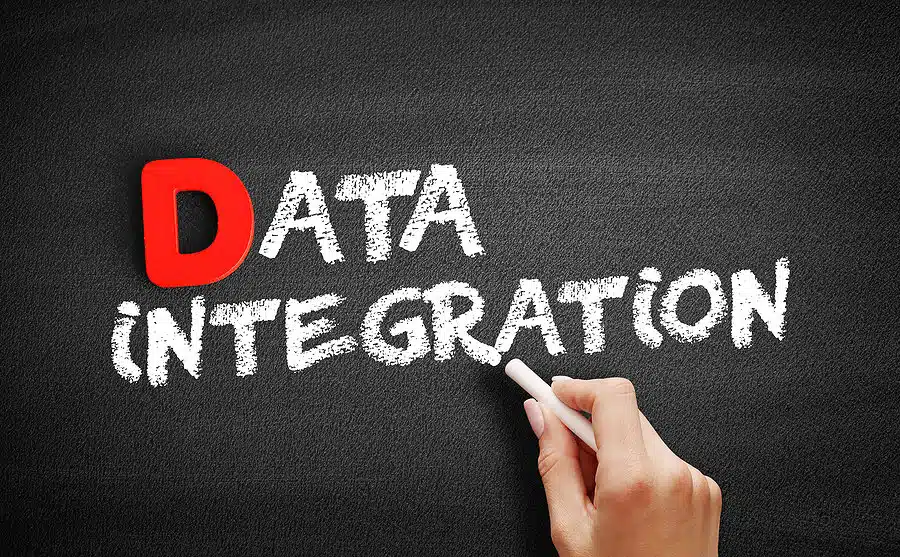What is Enterprise Data Integration, and Why Does it Matter?
Actian Corporation
August 19, 2020

Enterprise data integration is the merging of data across two or more organizations. This scenario is most commonly found when companies are going through mergers or acquisitions, and data from the two companies need to be brought together. Other scenarios for enterprise data integration are joint partnerships (where two or more companies work together under the umbrella of a shared business entity) and integration across different business units with an enterprise conglomerate. In any of these scenarios, effective enterprise data integration requires a combination of organizational politics, effective data architecture, and scalable data integration techniques.
This has become a very important topic for many business and IT executives over the past few years as companies go through the digital transformation of their business processes, leverage virtualized supply chains for delivery, and executive decision-makers become more comfortable with leveraging analytics and data to inform decision making. Siloed organizational structures are being collapsed; siloed business processes are being rationalized and modernized; fragmented IT systems are being rationalized, and siloed data needs to be integrated to provide an all-up view of the enterprise.
Why Enterprise Data Integration is Important
Organizations that fail to implement an enterprise data integration strategy effectively will find it difficult to reap sustainable value from digital transformation initiatives. Modernized business processes rely on integrated data for efficiencies and as an anchor point for rich user experiences. Artificial Intelligence systems that are being deployed to provide next-generation customer experiences are driven by data. If artificial intelligence (AI) does not have access to data from across the enterprise, it will be severely limited in the value it can provide.
Executive decision-makers are increasingly looking to enterprise dashboarding solutions like Tableau and Microsoft Power BI to provide them with all-up views across their organizations. These enterprise business intelligence platforms are intended to provide integrated dashboards that span different source systems – obscuring the complexity introduced by IT system implementations and enabling the executive to view data in business terms. Executives don’t want to go to multiple dashboards and reporting systems; they want all their data in one place, integrated, organized, and curated into views that they can easily understand. If they have these views, they can quickly identify issues needing their attention with supporting information so they can make responsive decisions. Without integrated enterprise data, the executive’s ability to act is compromised, and enterprise business agility suffers.
Why You Need an IPaaS Solution to Enable Enterprise Data Integration
Yes, you can achieve enterprise data integration through point-to-point connections – but you are going to spend more time and money than you need to achieve the desired outcomes, and it is going to cost you more to operate and maintain over time. If you want to be agile, if you want your data to be secure, if you want your solution to be scalable and flexible – you need to build your enterprise data integration on an IPaaS (Integration Platform as a Service) foundation.
An IPaaS solution provides three key characteristics that are critical for achieving a successful, sustainable enterprise data integration capability.
- Flexibility – Ability to connect anything, anytime, anywhere. Your enterprise is diverse, and if you are connecting data across organizations, flexibility is even more important. On-prem, in the cloud, mobile devices, deployed infrastructure, IoT – IPaaS supports it all. You need the ability to integrate anything because, eventually, you will want to integrate everything.
- Scalability – As your business grows and you modernize your IT systems, your data footprint will grow exponentially. Your IPaaS solution needs to be able to scale to support this growth without sacrificing performance or overburdening you with overhead costs.
- Secure Management – Information Security is top of mind for modern companies. An IPaaS solution provides a centralized place to manage integrations, source system credentials, and monitor the flow of data across your organization. IPaaS can help you lower your infosec risk.
Actian DataConnect is a leading IPaaS solution that provides the technology platform you’ll need to achieve your enterprise data integration objectives. Through a highly scalable hybrid deployment model, robust integration design capabilities, and automated deployment capabilities – DataConnect can help you deliver more effectively and faster than other solutions. To learn more, visit www.actian.com/dataconnect.
Subscribe to the Actian Blog
Subscribe to Actian’s blog to get data insights delivered right to you.
- Stay in the know – Get the latest in data analytics pushed directly to your inbox
- Never miss a post – You’ll receive automatic email updates to let you know when new posts are live
- It’s all up to you – Change your delivery preferences to suit your needs

